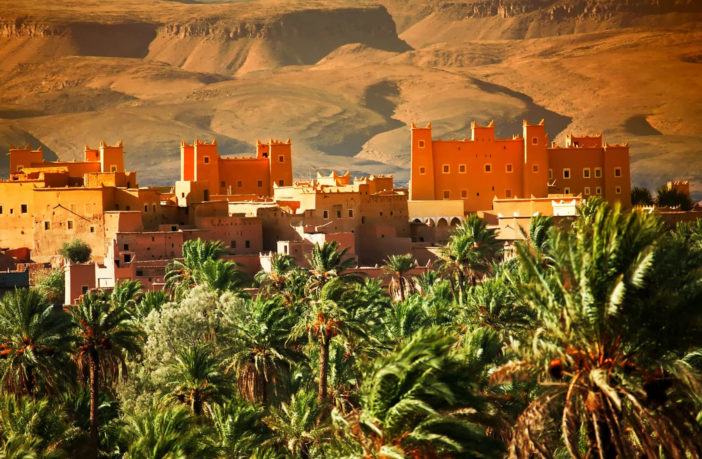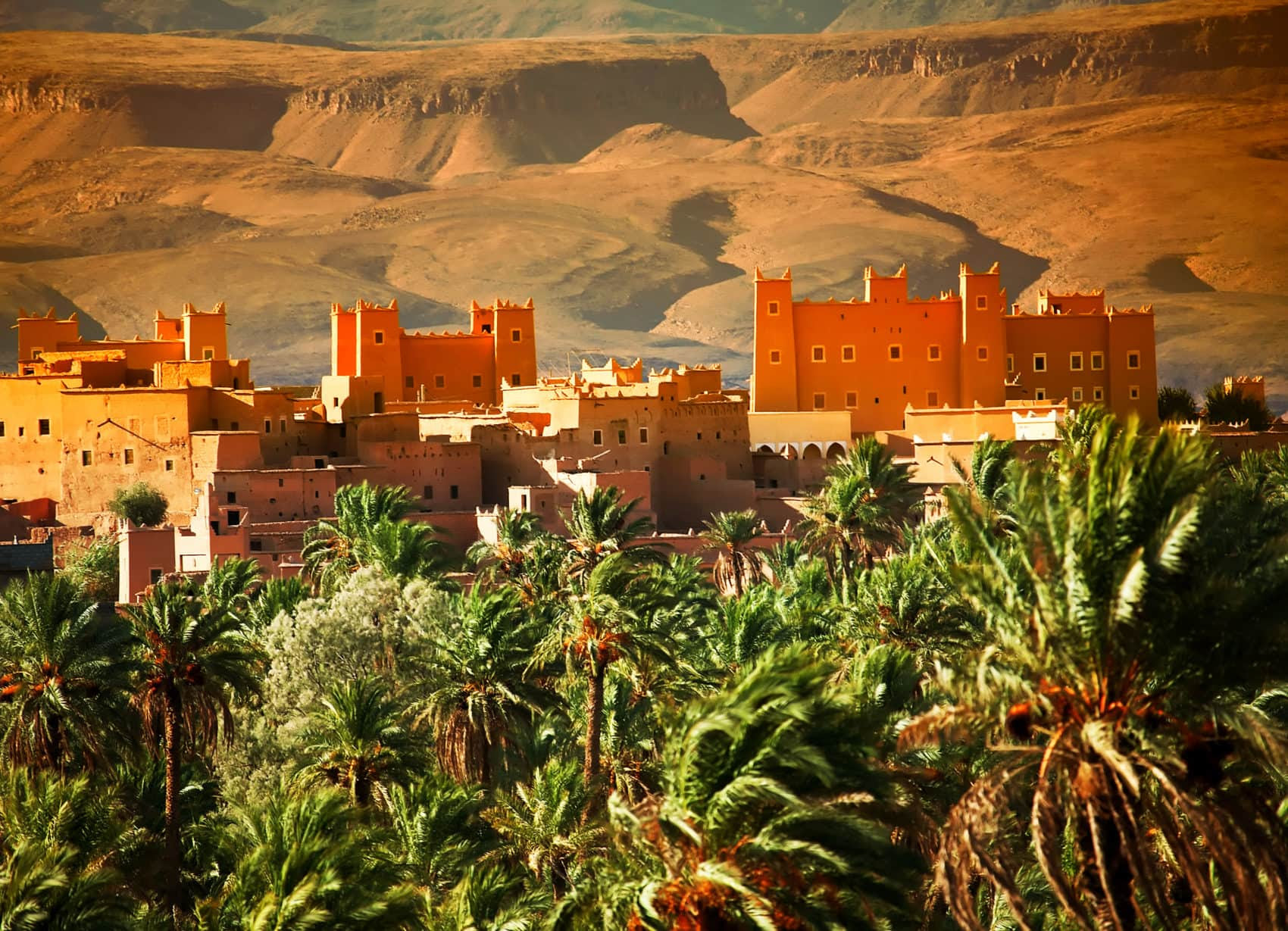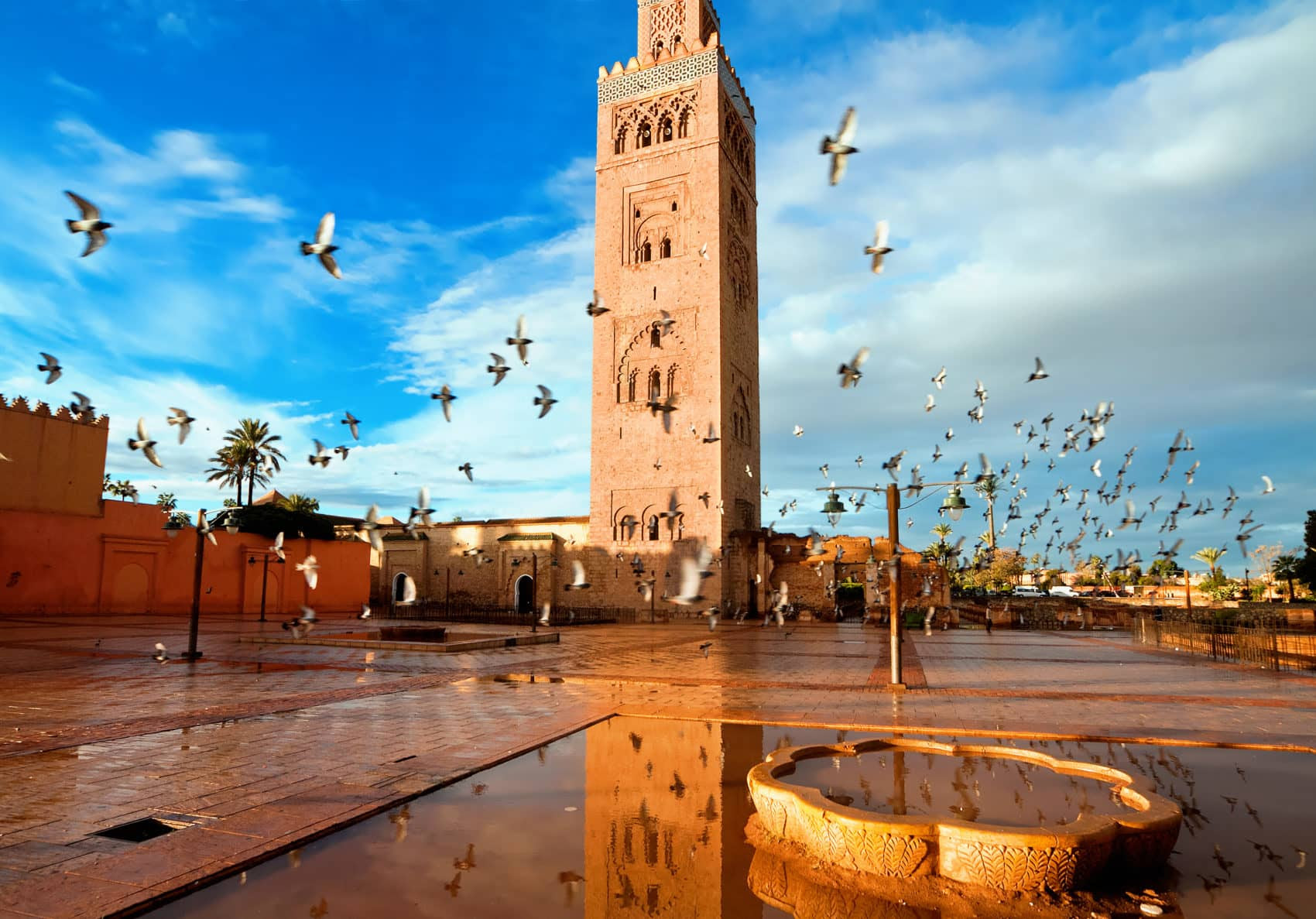News.co.uk
Claire Webb
Most visits to the North African country are trouble-free but travellers should take care not to cause offence.
Morocco is a short plane journey and a world away from the UK.
Brits flock to this enchanting North African country to explore the colourful souks of Marrakech and Fez, enjoy the golden beaches and great surf of Agadir or Essaouira, and hike in the stunning Atlas Mountains.
Koutoubia Mosque is the largest in Marrakesh (Photo: Shutterstock)
Around 650,000 Brits travel to Morocco every year without any problems.
However, it is a Muslim country with conservative laws and customs. For example, homosexuality and sex outside of marriage are criminal offences, and public displays of affection are considered offensive.
Here’s what you need to know.
The Foreign Office says it’s safe – but beware of scams
The UK Foreign Office says everywhere in Morocco is safe to travel to (you can check the latest advice at gov.uk). However, it does advise against all travel to areas of Western Sahara, a disputed territory that borders Morocco.
It warns that indiscriminate terrorist attacks are “likely” and advises travellers to remain vigilant at all times and to avoid demonstrations. In April 2011, 17 people died and many more were injured when a bomb exploded in a restaurant in the main square in Marrakech.
The FCO also cautions against trekking alone in the mountains, and warns that women travelling alone could be vulnerable to unwanted attention.
The most common crimes experienced by tourists are pick pocketing, bag-snatching, credit card fraud, con tricks, and hassle by people posing as official tourist guides. You should make sure your guide has an official badge and is employed by the local tourism authorities.
Homosexuality is a criminal offence
Homosexuality is illegal and anyone accused of it could be prosecuted. Heterosexual couples should also avoid public displays of affection outside of tourist areas. Hotels may ask couples for proof of marriage when they check in, and insist on separate rooms if you cannot provide any.
Drinking on the street or anywhere that isn’t a licensed bar or restaurant is also banned, as is flying a drone unless you have permission from the authorities – several Brits were fined and had their passports confiscated a couple of years ago for flying drones.
Women, especially women with blonde hair or travelling alone, are often hassled on the street. The Foreign Office advises women to cover their arms, legs and chest to minimise this sort of harassment.
You should take care not to cause offence, especially when in religious places and during the month of Ramadan, which is from 6 May to 4 June in 2019.
Morocco has a poor road safety record
The road fatality rate is nine times higher than in the UK. If you are planning to drive in Morocco, consult the FCO’s advice on road safety and make sure you have all the paperwork – you’ll need insurance, licence and registration documentation.
Brits don’t need a visa
British tourists can stay for up to three months without a visa. Make sure your passport is stamped when you enter the country and is in good condition.









